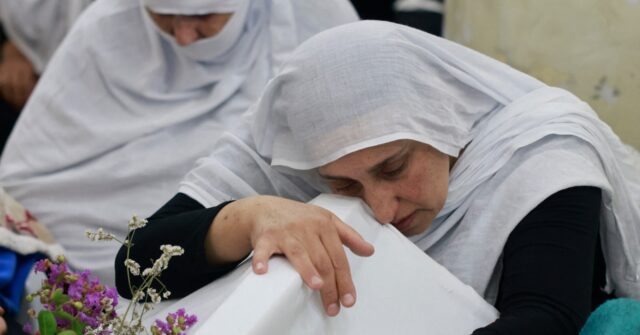World-renowned urban warfare expert John Spencer has delivered a searing indictment of international inaction over the systematic massacre of Syria’s Druze minority, arguing that while “human rights organizations say little” and “Western capitals issue muted statements or none at all,” Israel alone has responded with decisive action to protect a vulnerable community facing what Spencer describes as “ethnic and religious cleansing in broad daylight.”
Spencer, who serves as executive director of the Urban Warfare Institute and chair of urban warfare studies at West Point’s Modern War Institute, posted his analysis to X on Sunday in a viral social media post that has garnered over 1.5 million views following a brutal campaign of violence that has unfolded in southern Syria, where hundreds of Druze civilians have been murdered, kidnapped, or forced to flee their homes in what he characterizes as targeted terrorism rather than collateral damage from a broader conflict.
The retired U.S. Army major’s account details horrific atrocities captured on video and spreading across social media, including footage of Druze civilians “being hunted down and executed,” elders dragged into streets and forcibly shaved in acts of religious desecration, and men being “forced to leap from rooftops as militants cheer” while being shot “multiple times as they are leaping to their deaths.”
Spencer emphasizes the calculated nature of these attacks, noting that “all of it is filmed” and “shared online for the enjoyment of the killers,” comparing the deliberate cruelty to Hamas’s October 7 massacre of Israelis. “These images are not just horrifying,” he writes. “They are a visceral reminder of the savagery unleashed by Hamas on October 7. The same evil. The same joy in human suffering. The same defilement of dignity for propaganda and sadistic pleasure.”
The violence has centered around Sweida, a city and province that Spencer notes “had long remained a fragile sanctuary amid Syria’s decade of civil war.” The escalation began around July 11 after a Druze merchant was attacked, quickly spiraled into retaliatory attacks by regime-linked Bedouin gangs that overran entire neighborhoods between July 13 and 16.
Despite a ceasefire announced on July 18 following international pressure from the Syrian regime, Jordan, Turkey, and the United States, Spencer reports that violence has continued with “militants ignoring the truce” as “social media posts show fresh attacks, more bodies in the streets, and civilians fleeing villages.”
Spencer highlights the personal appeal made by Sheikh Muafak Tarif, the spiritual leader of Israel’s Druze community, to Prime Minister Benjamin Netanyahu, invoking Holocaust memory in a message that read, “During the Holocaust, when you were being slaughtered, you, the Jews, cried for help and no one came. Today we, the Druze, are being slaughtered and are calling for the help of Israel.”
The warfare expert notes Netanyahu’s immediate public response: “We have taken action, and we will continue to take action as necessary,” followed by Israeli airstrikes against Syrian regime military positions “both south of Damascus and within the capital itself” targeting forces involved in attacks on Druze civilians.
Spencer explains the deep ties between Israeli and Syrian Druze communities, noting that “many families are split across the border” and that for Israeli Druze, “the suffering of their brothers and sisters in Sweida is not distant news. It is family. It is urgent. It is personal.”
The urban warfare expert emphasizes that Israel’s response reflects more than shared history, writing: “This is not just about shared history or mutual loyalty, though those run deep. It is about moral clarity. It is about responding to evil when others stay silent. It is about understanding that the same ideologies that fuel the murder of Druze families in Sweida are no different from those that drove the slaughter of Israelis on October 7.”
Spencer delivers particularly sharp criticism of international silence, noting the absence of “emergency UN sessions,” “international protests,” or widespread media coverage. “The silence is deafening,” he writes. “The same institutions and voices that claim to champion human rights have gone quiet… It is a silence that reveals the selective morality of those who only speak when it fits their politics. It is a silence that enables genocide.”
His analysis of the Druze massacre underscores what he presents as a pattern of international moral failure, contrasting global inaction with Israel’s willingness to act decisively to protect vulnerable minorities facing systematic persecution.
Spencer concludes with a call for historical accountability: “Let history record who acted. Let it record who stayed silent. And let it record that when the Druze cried out, Israel listened.”
Spencer’s message has resonated widely across social media platforms, with many pointing to his analysis as evidence of selective international attention to human rights crises based on political considerations rather than humanitarian need.
Joshua Klein is a reporter for Breitbart News. Email him at [email protected]. Follow him on Twitter @JoshuaKlein
Read the full article here
